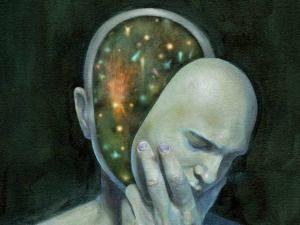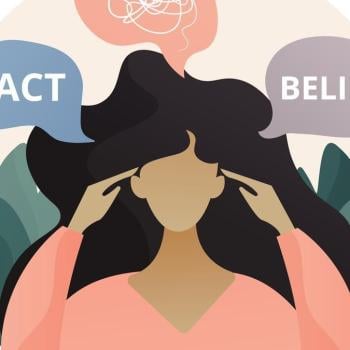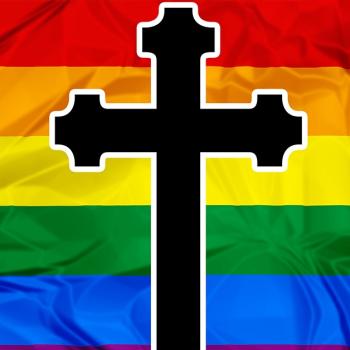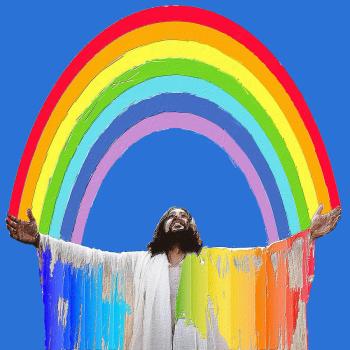
In a recent article, I argued for full inclusion of the LGBTQ+ community in the Church – not half-inclusion, when we provide a welcome of sorts while banning members of that community from leadership roles and quietly believing there’s something fundamentally wrong with who they are, but full inclusion, along with a sincere apology for all the pain the Church has inflicted.
The purpose of today’s follow-up piece is to examine the disastrous and painful consequences of continuing to exclude the LGBTQ+ community. I grew up in a fairly typically conservative, Evangelical church, where apparently nobody was gay. Homosexuality was perhaps mentioned from time to time, but only as a sin and not one any of us had to bother with (as we weren’t gay and neither was anyone else around us).
While attending university, I joined a massive Christian union in which nobody I knew was gay either. After graduating, I joined a missionary organisation and travelled the world with hundreds of other Christians. I remember an Aussie friend of mine telling me with utter confidence that there were no homosexuals in Australia. Obviously, other Australians would have known better, but such was his indoctrination that he’d never paused to question the ridiculous ideas he’d been fed.
In the Church, the topic of same sex relationships is largely avoided as an inconvenient reality. I’ve not heard any Evangelical leader speak on the subject from the pulpit for years, which is probably the result of believers finding themselves caught between the call to compassion and the call to holiness (as perceived, rather than in true, Godly terms). The inconvenient reality gets brushed under the carpet, the crucial decisions we need to make pushed down the road, and all the while people are suffering.
The dire consequences of exclusion
In reality, many leaders in our churches will be somewhere on the LGBTQ+ spectrum but living in denial. Personally, I’m aware of the tragic case of a married vicar having an affair with another man while on a ministry trip. For the sake of this article, I will call him Robert. Robert was not some rebel outlier from an edgy church, but the most middle class man you’re ever likely to meet. He and his wife were highly respected members of the community, had several children, and lived a model life as far as Robert’s parishioners were concerned.
Robert had grown up in the church and, like most young Christians, would never have been given room to consider his sexual orientation. He wouldn’t have paused to consider who he truly was or the choices he had, but continued down the traditional road before him in ignorance. I’d be amazed if he identified as someone who experienced same-sex attraction when he married, but a lifetime of repression and denial of the truth finally erupted, as it always does.
Steeped in shame, Robert told his wife what he’d done, and after an excruciating period of personal anguish, they realised they were trapped. They couldn’t tell the church because Robert would have lost his job, which would have meant losing his house (the large, comfortable vicarage that came with the role). Robert had no other skills or trade to fall back on, and would have found it impossible to earn any other way.
Facing the hardest crisis of their lives, Robert and his wife made the decision to live a lie. They sat their adult children down and told them the whole deal, making them promise to keep the secret to themselves and thereby binding them in the lie as well. And so life continued – a hollow shell, a daily sham, lived in public. The consequences for his family were dreadful – how could his wife and children deal with the harm he’d caused if they could never speak of it? Healing was literally impossible, the chance of it held at bay by the need for secrecy.
Truthfully, I can’t find it in my heart to blame Robert, or at least not in full. Yes, he messed up and deeply wounded his family, but his upbringing and indoctrination had left him utterly unprepared to live an authentic and honest life as a homosexual man. The sham his family life became was an almost inevitable product of his circumstances. On the other hand, I can and do blame the Church for its blindness, laziness, lack of compassion, and cowardice on the subject of LGBTQ+ inclusion. If we addressed the issue honestly and without judgement, many people would be preserved from these terrible harms.
Living a lie?
There will be believers reading this article whose soul is reverberating like a struck gong. Some will be members of the congregation, living a dishonest life. Others will be caught in self-hatred, fighting themselves over something that simply isn’t negotiable. Some will be young people, fearing to ask the question but trapped in painful cognitive dissonance. Others will be leaders, knowing that if they tell the truth they will lose their position, their community, and everything that comes with it.
We have done this to ourselves and to each other, inflicting pain upon pain. What must we do to redress the imbalance? What can we do to save people from the hellish disingenuousness of their lives? Lord have mercy on us!
















